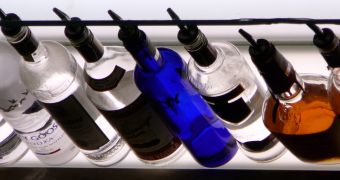Official statistics show that students from the United States who study aboard, mostly in European countries, tend to double the amount of alcohol they usually drink when in their native homeland.
The correlation holds true for those who study a single semester or an entire year, the study shows. But some students still prefer to spend their time learning about a different culture.
One of the main results is that most of the exchange students however get involved in excessive drinking. They see their trip as an extended spring break, scientists say.
They have a lot of bars and alcohol readily available to them, no parental supervision, and also very few academic responsibilities. And the young adults don't hesitate to use their time to drink more.
The new investigation was carried out by researchers at the University of Washington, who also suggest a series of ways that can be used to curb this phenomenon.
“We hear stories in the media and elsewhere about students going abroad, drinking too much and getting into trouble,” explains UW graduate student in psychology Eric Pedersen.
“But no one has ever measured this risky drinking behavior and there are no published studies of prevention strategies before they go abroad,” he adds.
Scientists say that there are a wide variety of effects to binge drinking abroad. Some of them are mild, such as missing a number of classes on account of hangovers, but others are more severe.
Students may for example get into fight, and get injured as a result. They are also more likely to engage in dangerous behavior that will see them get hurt.
Last but not least, they endanger the romantic relationships they have at home by running a higher risk of engaging in regrettable sexual experiences with people they barely know.
The new investigation demonstrated that students traveling abroad can drink up to 8 servings of alcohol per week, as opposed to the average 4 they have while at home.
Details of the study are published in the current issue of the esteemed medical journal Psychology of Addictive Behaviors.
“We can't really say if this is risky drinking or not. This could be a drink a night – a glass of wine at dinner – over the course of a week,” Pedersen says.
“The study abroad experience presents both unique opportunities and unique risks for students,” argues expert Mary Larimer.
The scientist is the director of the Center for the Study of Health and Risk Behaviors at the university, and an associate director of the UW Addictive Behaviors Research Center.
“Working with these students pre-departure is a terrific opportunity to help reduce their risks for drinking consequences while abroad, and may also help prevent difficulties when they return home,” she concludes.

 14 DAY TRIAL //
14 DAY TRIAL //